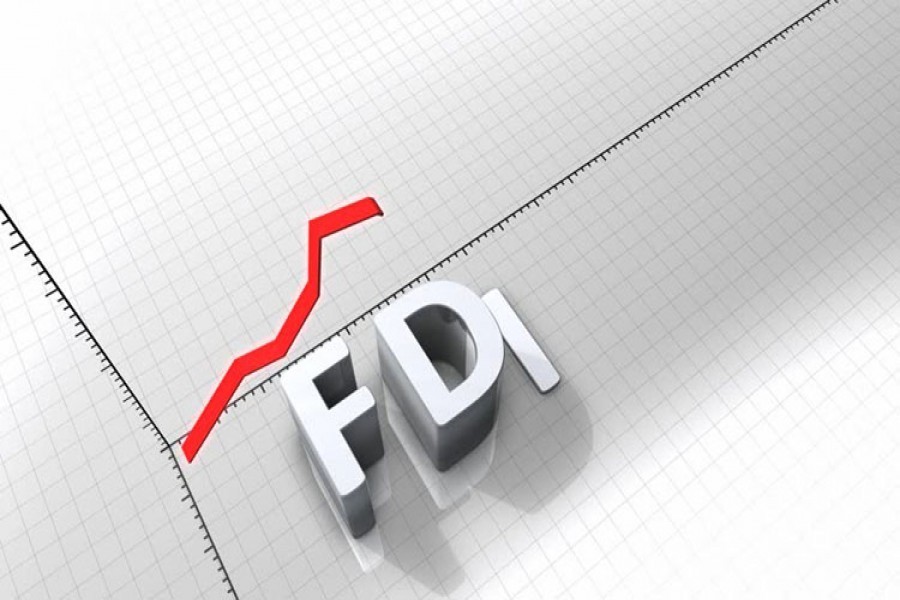Finance minister AHM Mustafa Kamal on Thursday voiced his frustration over poor foreign direct investments in the country, which he called "unfortunate."
He said the total size of global gross domestic product is US$88 trillion, of which 16 per cent is foreign direct investment.
Mr Kamal, however, said physical infrastructure in the country has been developed enough to attract investment and he believes that FDI will start pouring in soon.
"The required physical infrastructure has been created, but now we need to create non-physical infrastructure," he said.
He made the remarks at a virtual event marking the fourth anniversary of BIDA, presided over by its executive chairman Sirazul Islam.
Mr Kamal, also vice chairman of BIDA, urged the officials concerned to fill up the gaps to facilitate the inflow of foreign investments.
Expressing his optimism over the quick recovery from the impacts of Covid-19 pandemic, the minister said in July-August period all the components of the macro-economy came with positive note.
The export earnings made a comeback while remittance also increased by 50 per cent, he said.
Terming manpower main resources of the country, Mr Kamal underscored the need for proper utilisation of them to make gains.
"With only a few number of products, we would not be able enhance export earnings," he said, urging all to identify new exportable items and added that required incentives will be provided to all.
"We should not limit ourselves to only four to five items," he said.
Prime Minister's private industry and investment affairs adviser Salman Fazlur Rahman said if local investors make investment, foreigners will also come to Bangladesh.
He said apart from the endeavours the BIDA is making for 'ease of doing business,' it needs to make the one stop service more effective.
"I think, if we can successfully implement the OSS, our entire investment ecosystem will be friendly one," he said.
Mr Rahman said it was seen that some work relating to making investment can be done easily, but some face difficulties. These problems make investors unhappy or hinders the inflow of investment, he said.
He underscored the need for digitising the services being provided from the government offices to lower many investment-related hurdles.
In this case, Mr Rahman referred to the transfer of financial aid to poor people through mobile financial services, which made it much easier.
"If we can make all government services digitised the efficiency and transparency will increase," he said.
President of the Federation of Bangladesh Chambers of Commerce and Industry (FBCCI) Fazle Fahim was optimistic that the economy will bounce back soon.
"As we navigate the next normal, we are confident on our economy, as it is demonstrating the recovery trend with positive growth in July 2020," he said.
Despite the Covid-19 crisis, he said, the country attained 5.4 per cent GDP growth, 5.4 per cent remittance growth, and foreign currency reserve growth at the rate of 10 per cent in last fiscal year.
He said although net FDI flows in the third quarter of the last fiscal year declined, foreign investors will come in the days to come.
Speakers on emphasised the need for making the one stop service of Bangladesh Investment Development Authority (BIDA) more effective to attract foreign investors.
They also underscored the need for digitisation of all services, further improving the ease of doing business ranking and expansion of product basket for raising export earnings in the new normal business environment.
President of the Bangladesh Garment Manufacturers and Exporters Association Dr Rubana Huq, Bangladesh Women Chamber of Commerce and Industry president Selima Ahmad, acting country manager of International Finance Corporation Nuzhat Anwar, managing director of Bangladesh Hi-Tech Park Authority Hosne Ara Begum, Bangladesh Economic Zones Authority executive chairman Paban Chowdhury, chairman of Unilever Bangladesh Kedar Lele, and chief executive officer of Grameenphone Yasir Azman spoke, among others, on the occasion.


